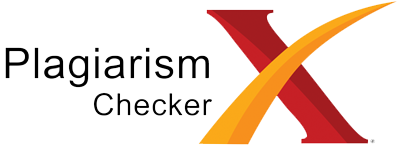Pengaruh Hybrid Learning Dengan Model Kolaboratif Berbasis Masalah Terhadap Hasil Belajar Bahasa Indonesia
Abstract
The ability to collaborate and solve problems is a skill that is much needed in the 21st century. Therefore, the independent curriculum places great emphasis on learning methods that allow students to collaborate to solve problems. In fact, currently in hybrid learning practices these two skills are a necessity. This study aims to determine differences in student learning outcomes that are taught in a hybrid way with face-to-face learning using problem-based collaborative models in understanding inspirational story texts. The method used in this study was a quasi-experimental design with a pretest-posttest control group design. Sampling technique with cluster random sampling. The experimental class received a hybrid learning treatment with a problem-based collaborative model, while the control class received face-to-face learning treatment with a problem-based collaborative model. Data collection techniques using tests. To find out the differences in student learning outcomes, the independent sample t test was used, with statistically significant test results, the null hypothesis was rejected, where there were differences in the average learning outcomes of the experimental group and the control group.
Abstrak
Kemampuan berkolaborasi dan memecahkan masalah merupakan kecakapan yang sangat dibutuhkan di abad 21. Karena itu, kurikulum merdeka sangat menekankan metode pembelajaran yang memungkinkan siswa berkolaborasi untuk memecahkan masalah. Bahkan, saat ini dalam praktik pembelajaran hybrid kedua kecakapan tersebut adalah keniscayaan. Penelitian ini bertujuan untuk mengetahui perbedaan hasil belajar siswa yang dibelajarkan secara hybrid dengan pembelajaran tatap muka menggunakan model kolaboratif berbasis masalah dalam memahami teks cerita inspiratif. Metode yang digunakan dalam penelitian ini adalah quasi experiment dengan desain pretest-posttest control group design. Teknik pengambilan sampel dengan cluster random sampling. Kelas eksperimen mendapat perlakuan hybrid learning dengan model kolaboratif berbasis masalah, sedangkan kelas kontrol mendapatkan perlakuan pembelajaran tatap muka dengan model kolaboratif berbasis masalah. Teknik pengumpulan data dengan menggunakan tes. Untuk mengetahui perbedaan hasil belajar siswa digunakan uji independent sample t, dengan hasil uji signifikan secara statistik, maka hipotesis nol ditolak, dimana ada perbedaan rata-rata hasil belajar kelompok eksperimen dan kelompok kontrol.
Keywords
Full Text:
PDFReferences
Al-Drees AA, Khalil MS, Irshad M, Abdulghani HM. (2015). Students' perception towards the problem based learning tutorial session in a system-based hybrid curriculum. Saudi Med J. 36(3):341-8.
Amin, Saiful, Sumarmi, Syamsul Bachri, Singgih Susilo. (2020). The Effect of Problem-Based Hybrid Learning (PBHL) Models on Spatial Thinking Ability and Geography Learning Outcomes. iJET. Volume 15, Number 19.
Atira, Rosleny Babo, Muhajir. (2021). Pengaruh model pembelajaran kolaboratif berbasis masalah terhadap kemampuan pemecahan masalah dalam pembelajaran ips siswa kelas V SD. Prosiding Seminar Nasional Pendidikan Dasar “Merdeka Belajar dalam Menyambut Era Masyarakat 5.0” Pascasarjana Universitas Negeri Gorontalo 25 November 2021.
Atwa, Shaimaa, Victoria J. Gauci‑Mansour, Russell Thomson, Iman Hegazi. (2019). Team‑based and case‑based learning: a hybrid pedagogy model enhancing students’ academic performance and experiences at frst‑year tertiary level. The Australian Educational Researcher. 46:93–112.
Besche, Henrike C, et. al. (2019). Step-by-Step Guide to Case-Based Collaborative Learning (CBCL). Switzerland: Springer Nature.
Christensen, C. M., Horn, M. B., & Staker, H. (2013). Is K-12 blended learning disruptive? An introduction to the theory of hybrids. Clayton Christensen Institute.
Ganovia, Paulus, Sherly, Herman. (2022). Efektivitas Hybrid Learning dalam Proses Pembelajaran untuk Siswa Kelas XI SMA Kalam Kudus Pematangsiantar. Jurnal Pendidikan Tambusai. Volume 6 Nomor 1.
Gil, Einat, et. al. (2022). Hybrid Learning Spaces. Switzerland: Springer Nature.
Gil-Jaurena, I., & Kucina Softic, S. (2016). Aligning learning outcomes and assessment methods: a web tool for e-learning courses. International Journal of Educational Technology in Higher Education. 13(1).
Gudeva, Liljana Koleva, Violeta Dimova, Nina Daskalovska, Fidanka Trajkova. (2012). Designing Descriptors of Learning Outcomes for Higher Education Qualification. Procedia - Social and Behavioral Sciences. Volume 46.
Hastjarjo, T. Dicky. (2019). Rancangan Eksperimen-Kuasi. Buletin Psikologi. Vol. 27, No. 2, 187 – 203.
Hediansah, Disa & Herman Dwi Surjono. (2020). Hybrid Learning Development to Improve Teacher Learning Management. JKTP: Jurnal Kajian Teknologi Pendidikan. Vol 3 No (1): 1-9
Hendarwati, Endah, et. al. (2021). The Collaborative Problem Based Learning Model Innovation. Journal of Educational and Social Research. Vol. 11 No. 4.
Hidayat, Karyadi, Sapriya, Said Hamid Hasan, Erlina Wiyanarti. (2022). Keterampilan Berpikir Kritis Peserta Didik dalam Pembelajaran Hybrid. Jurnal Basicedu. Volume 6 Nomor 2.
Hidayati, L., R. Amalyaningsih, A.W. Ningrum, U. Nurhayati, N. Wakhidah. (2022). Respons Peserta Didik terhadap Penerapan Model Pembelajaran Hybrid Learning di MTs Negeri 2 Sidoarjo. Pensa E-Jurnal : Pendidikan Sains. Volume 10 Nomor 1.
Karnaningsih, Shinta Candra, Sulton, Arafah Husna. (2021). Hubungan Kompetensi Guru Dengan Hasil Belajar IPS di Sekolah Menengah Atas. JKTP: Jurnal Kajian Teknologi Pendidikan. Vol 4 (1): 1-118.
Lestari, S Syafril, Sri Latifah, E Engkizar, D Damri, Zainal Asril and Nova Erlina Yaumas. (2020). Hybrid learning on problem-solving abiities in physics learning: A literature review. Journal of Physics: Conference Series. Volume 1796: 22-23.
Ningrum, Puji. (2016). Meningkatkan Keaktifan dan Kemampuan Berpikir Kreatif Melalui Pembelajaran Kolaboratif Berbasis Masalah Materi Kelarutan dan Hasil Kali Kelarutan (KSP) Siswa Kelas XI SMA Negeri 10 Semarang. Jurnal Pendidikan Sains Universitas Muhammadiyah Semarang. Volume 04 Nomor 01.
Nookhong, Jarumon & Panita Wannapiroon. (2015). Development of Collaborative Learning Using Case-based Learning via Cloud Technology and Social Media for Enhancing Problem-solving Skills and ICT Literacy within Undergraduate Students. Procedia - Social and Behavioral Sciences. Volume 174: 2096-2101.
Nuramalina, Nina, Imam Agus Basuki, Suyono. (2019). Pengaruh Model Kolaboratif Berbasis Masalah terhadap Kepuasan Belajar Siswa Sekolah Dasar. Jurnal Pendidikan: Teori, Penelitian, dan Pengembangan. Volume: 4 (1): 29-35.
Purwanto, Tri, Tri Widyasari, Ratna Dwi Christyanti. (2017). Mengembangkan Prestasi Belajar dan Minat Terhadap Pembelajaran Matematika Siswa SMP Kelas VIII Menggunakan Pembelajaran Kolaboratif Berbasis Masalah. Medives. 1 (1).
Raes, A. (2022). Exploring Student and Teacher Experiences in Hybrid Learning Environments: Does Presence Matter? Postdigit Sci Educ 4. 138–159
Rahayu, Astutri Puji, Dian Hidayati, Susilowati, Fillah Babul Fathatul Jannah. (2022). Pembelajaran Interaktif Melalui Hybrid Learning Dengan Metode Demonstrasi. JKTP: Jurnal Kajian Teknologi Pendidikan. Vol. 5 (3): 326-336.
Ramdhani, T., I. G. P. Suharta, I. G.P. Sudiarta. (2020). Pengaruh Model Pembelajaran Hybrid Learning berbantuan Schoology untuk Meningkatkan Prestasi Belajar Matematika Siswa Kelas XI SMAN 2 Singaraja. Jurnal Pendidikan Matematika Undiksha. Volume 11 Nomor 2.
Sajidan, et. al. (2022). Problem-Based Learning-Collaboration (PBL-C) Model in Elementary School Science Learning in The Industrial Revolution Era 4.0 And Indonesia Society 5.0. Jurnal Pendidikan IPA Indonesia. 11(3) 477-488.
Saputra, Hendra Dani, dkk. (2018). Pengaruh Motivasi Terhadap Hasil Belajar Siswa SMK. Jurnal Inovasi Vokasional dan Teknologi. Volume 18 Number 1.
Schmidt, Henk G., Jerome I. Rotgans, and Elaine H. J. Yew. (2019). Cognitive Constructivist Foundations of Problem‐Based Learning dalam The Wiley Handbook of Problem Based Learning. New Jersey: Willey Blackwell.
Tamm, James W. (2004). Radical Collaboration. New York: HarperCollins Publisher Inc.
Tarmizi, Rohani Ahmad & Sahar Bayat. (2011). Collaborative problem-based learning in mathematics: A cognitive load perspective. Procedia - Social and Behavioral Sciences. Volume 32, 344-350.
Vogeltanz-Holm, Nancy, Linda M. Olson, Kurt E. Borg, Thomas M. Hill. (2014). Implementation and Evaluation of a Team-Based Learning Approach Within a Hybrid Problem-Based Learning Medical Education Curriculum. Med.Sci.Educ. 24:125–133.
DOI: http://dx.doi.org/10.17977/um038v6i22023p084
Refbacks
- There are currently no refbacks.
Copyright (c) 2023 Lusy Ayu Widowati

This work is licensed under a Creative Commons Attribution-ShareAlike 4.0 International License.
JKTP: Jurnal Kajian Teknologi Pendidikan published by Department of Educational Technology, Faculty of Education, State University of Malang in Collaboration with Asosiasi Program Studi Teknologi Pendidikan Indonesia (APS TPI).
Publisher Address:
Lab. Teknologi Pendidikan, Gd.E2, Lt.1
Fakultas Ilmu Pendidikan Universitas Negeri Malang
Jl. Semarang 5, Kota Malang Email: jktp.fip@um.ac.id
========================================================================================================
| INDEXED BY | TOOLS | PLAGIARISM CHECK | ARTICLE TEMPLATE |
|
|

JKTP: Jurnal Kajian Teknologi Pendidikan is licensed under a Creative Commons Attribution-ShareAlike 4.0 International License.
JKTP Statistics (Since July 13th, 2020)





.png)












